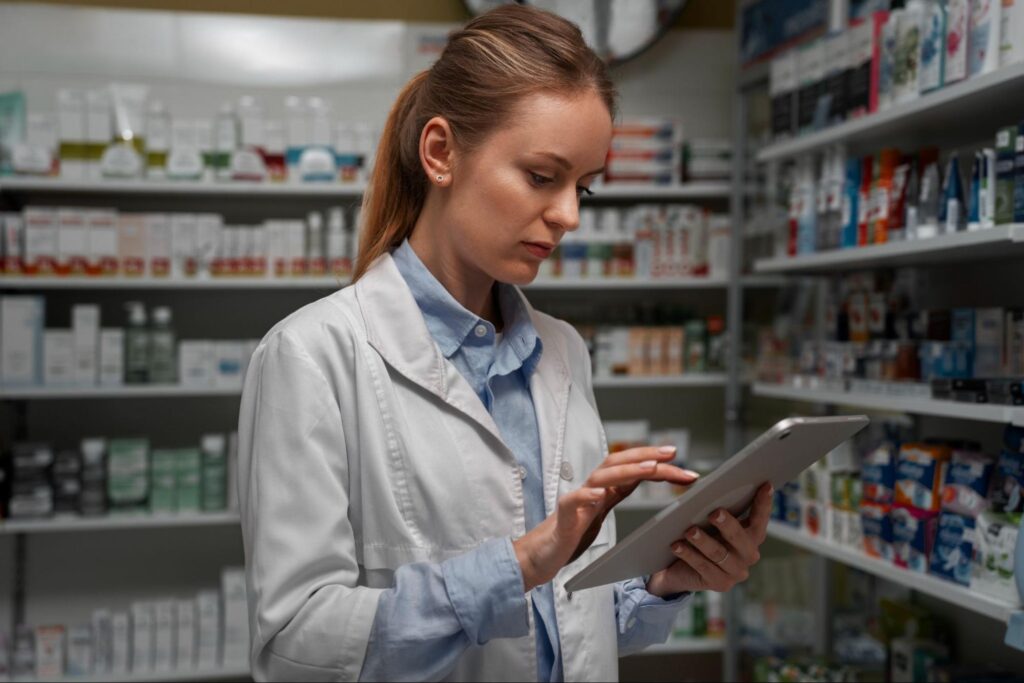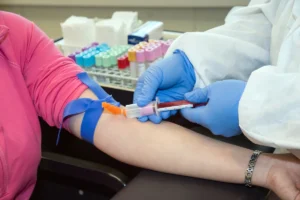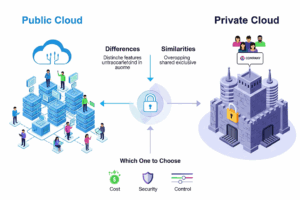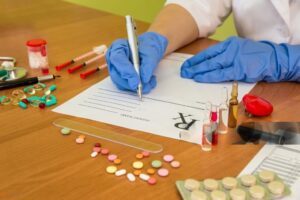
It should be noted that in the fast-paced realm of pharmacy, these tools are not optional or merely a luxury; these are essential equipment you’ll use every day.
We’ve divided tools into categories to help you understand which tool is for
what purpose, and we’ll also be answering the most common questions for aspiring pharmacy techs.
Essential Tools Used as a Pharmacy Tech
The following tools, gear, and software are essential for performing day-to-day tasks as a pharmacy technician:
1. Prescription Processing Systems
A prescription processing system automates the creation, transmission, and management of prescriptions, typically using electronic methods.
Computer Systems & Pharmacy Software
Every pharmacy relies on specialized software to process prescriptions, manage patient records, and handle insurance claims. These systems ensure accuracy and streamline workflow, making them indispensable for pharmacy techs.
NOTE: Particular software will depend on the pharmacy and hospital. For instance, the most popular pharmacy software in Texas is PioneerRX. |
Barcode Scanners
Much like other businesses, barcode scanners are essential for a pharmacy tech. These are used to track inventory and verify that the correct medication is dispensed to the right patient, reducing errors and enhancing safety.
2. Medication Dispensing Tools
As the name suggests, these tools and machines are designed to help pharmacy technicians with counting and dispensing medications.
Pill Counters & Counting Trays
These allow pharmacy techs to quickly and accurately count tablets and capsules, minimizing manual errors and ensuring patients receive the correct dosage.
Automated Pill Dispensers
Increasingly common, these machines automate the counting process, saving time and improving accuracy, especially in high-volume settings.
Liquid Dispensers
For liquid medications, these programmable devices dispense precise amounts into sterile bottles.
3. Packaging and Labeling Equipment
Since pharmacy technicians deal with customers directly, these tools help them package and label prescriptions.
Prescription Containers
Secure packaging for medications is essential for patient safety.
Labeling Machines & Software
Used to print accurate medication labels, often integrated with pharmacy management systems.
4. Inventory Management Tools
Inventory management tools are essential for pharmacy technicians, as they enable them to manage the inventory of medications and order new prescriptions, if necessary.
Medication Bins & Shelves
Not necessarily a tool, but these are an essential part of pharmacies. These storage bins and shelves help techs locate and manage medications efficiently, especially during rush hours.
Inventory Management Software
Thankfully, pharmacy technicians don’t have to manage the inventory manually. This dedicated software tracks medication stock levels, monitors usage trends, and manages ordering and restocking processes. It is crucial for ensuring medication availability, reducing waste, and maintaining compliance.
NOTE: Inventory management software is not the same as prescription processing software, but it often integrates with it to provide a seamless workflow. The most popular software right now is McKesson. |
5. Compounding & Lab Equipment
Compounding is one of the fundamentals of being a pharma tech. It is the practice of combining, mixing, or altering ingredients of a drug to create a customized medication for a specific patient.
Balances (Analytical & Electronic)
For weighing ingredients precisely during compounding.
Mortar & Pestle
Although ancient, mortar & pestles are still relevant and used in 2025 in pharmacies and labs across the US to grind and mix substances for customized medications.
Graduated Cylinders, Beakers, and Flasks
For measuring and mixing liquids in compounding or laboratory settings.
Hotplates, Magnetic Stirrers, and Ointment Slabs
Used for heating, mixing, and preparing various pharmaceutical formulations.
6. Sterilization and Safety
Patient safety is paramount to a pharmacy technician, making the following equipment essential.
Autoclave
Sterilizes tools and surfaces using high-pressure steam, crucial for maintaining a sterile work environment.
Personal Protective Equipment (PPE)
Gloves, masks, and goggles protect both the technician and the medication from contamination.
Handwashing Check Systems
Ensure proper hygiene practices in compounding and dispensing. There are also automated handwashing systems to ensure efficient and thorough hygiene.
7. Automated Dispensing Systems
Automated Dispensing Cabinets and Systems
These provide secure medication storage and dispensing within the pharmacy, improving accuracy and efficiency in the medication distribution process.
While they are not prescription processing software, they often interface with such systems to receive and verify orders, releasing the correct medication and updating inventory in real-time. Their main function is secure and accurate dispensing, and they are especially prevalent in hospital and high-volume pharmacy settings.
Specialized Tools for Different Types of Pharmacy Technicians
Since pharmacy technicians work in diverse environments, each workplace requires unique tool requirements. Here’s a quick overview of equipment:
Type of Pharmacy Technician | Key Tools/Equipment |
Hospital Pharmacy Technician |
|
Compounding Pharmacy Technician |
|
Laboratory Pharmacy Technician |
|
Retail Pharmacy Technician |
|
Pharmacy Technician Informaticist |
|
On-the-Job Essentials
- Customer Service Tools: Phones, headsets, and point-of-sale systems for handling patient interactions and transactions.
- Reference Materials: Drug databases and printed references for verifying medication information.
- Inventory & Packaging Systems: For managing stock and preparing medications for delivery or pick-up.
How These Systems Work Together
Modern pharmacies rely on an integrated approach:
- Prescription Processing Software manages the workflow of receiving, verifying, and processing medication orders.
- Automated Dispensing Systems securely store and dispense medications, often interfacing with prescription processing software to ensure the correct medication is dispensed.
- Inventory Management Software tracks stock levels and usage, updating automatically as prescriptions are filled and medications are dispensed.
This integration streamlines pharmacy operations, enhances accuracy, and ensures patient safety.
Final Words
Pharmacy technicians rely on a blend of traditional tools like counting trays and mortars, and advanced technology like automated dispensers, inventory software, and prescription processing systems to ensure safe, accurate, and efficient medication handling.
If you’re aiming to become a pharma tech, then it’s best to learn about these tools and software. At CCI Training Centers, we train you on all aspects and tools.
Program Offered
- Pharmacy Technician Training
- Online Medical Assistant
- Medical Billing and Coding Specialist Program
- Cloud Computing Technician Training
- Computer Network Technician
- Business and Accounting
- Radiology Technician Training
- Medical Assistant Program
- Computer Support Technician
- Cybersecurity Program
- Virtual Assistant Training

This article is written by
Share this article
Program Offered
- Pharmacy Technician Training
- Online Medical Assistant
- Medical Billing and Coding Specialist Program
- Cloud Computing Technician Training
- Computer Network Technician
- Business and Accounting
- Radiology Technician Training
- Medical Assistant Program
- Computer Support Technician
- Cybersecurity Program
- Virtual Assistant Training

This article is written by
Share this article
Related Articles

















